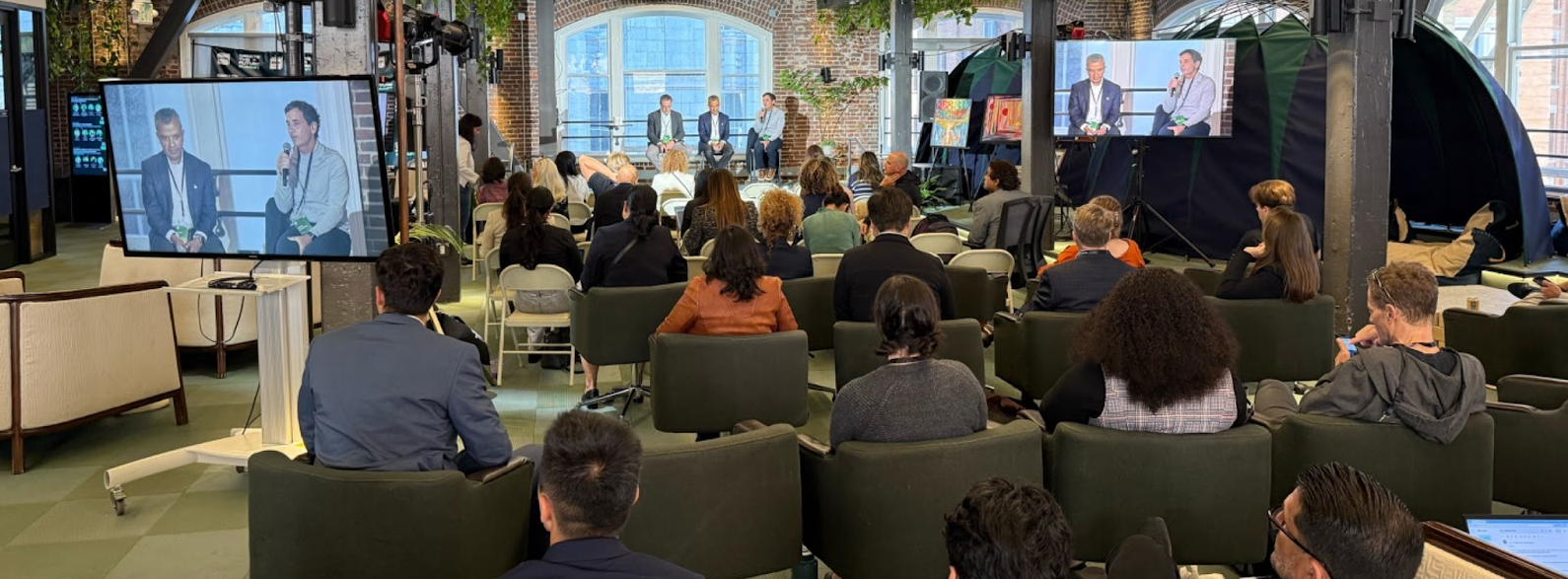Werqwise, San Francisco hosted some of the most introspective voices in technology, entrepreneurship, public policy, and the arts. On August 14th, the Create the Future Summit 2025 offered a one-day forum where influential business leaders, VCs, investors, tech experts, and forward-thinking government officials exchanged ideas and strategies about the future. Making Sense, the Palo Alto-based venture studio, participated in the conversation on how digital transformation services, from AI-driven solutions and system integration to customer experience optimization, are shaping today’s business growth.
The sessions covered topics ranging from artificial intelligence and sustainable development to investment patterns and public-private collaboration. The variety of the sessions was never in question, but so was the message: the future is not theoretical; it is already here, and companies need to decide how to respond to it.
A Playbook for Business Growth
One of the most anticipated sessions was “The New Playbook for Running and Growing Businesses, ” facilitated by Stephen Baiter of the East Bay Economic Development Alliance. The panel brought together leaders who’ve had to scale and construct through disruption.
Panel members were César DOnofrio, CEO of Making Sense, and Dr. Shalabh Gupta, CEO of Unicycive Therapeutics. The conversations started with the broader picture: how AI is being used in most industries, how new business models are emerging, and how companies are attempting to solve problems that didn’t even exist a couple of years ago.
For DOnofrio, the “new playbook” is something like cultivating adaptability. “We have to be flexible, we have to be ready to learn, and to transform the business we are in every day,” he said. “Being flexible is the new playbook, how you can transform yourself to take advantage of the AI opportunities coming in the next few years.”
DOnofrio spoke about how, through his Venture Studio model, he has incubated five companies, with lessons feeding back into the consulting practice. This dual role allows the firm to “move at startup speed” while delivering with the structure of a strategic partner.
Scaling, however, has its demands, so he emphasized culture as a non-negotiable when growing internationally, “when you start with 20 or 30 people, culture is easy. But when you grow to hundreds, you need to be clear on your mission, your vision, and your core values, and align every hire with them.”
Gupta agreed to focus on flexibility but added another dimension, “If you’re thinking of founding a company, the most important thing is to identify an unmet need, not just to use a skillset you already have. Too many entrepreneurs are looking for a nail because they already have a hammer. The best opportunities come when your unique skills or network match an unmet market demand.”In other words, flexibility matters, but only when it’s anchored to a clear understanding of the opportunities that truly add value.

The New Playbook for Running and Growing Businesses Panel with Stephen Baiter [2] , Dr. Shalabh Gupta[3], and César DOnofrio [1]
From AI Agents to Uncharted Job Markets
One overarching theme was that AI is not on the horizon but is already in plain sight. Attendees explained how AI agents are already working in customer service, performing internal tasks robotically, and streamlining production.
Cutting-edge innovations in artificial intelligence, robotics, and technology came to life through interactive demonstrations and real-world applications from Unitree, Next Robot, and Mooe-Robot.

Digital transformation with AI is only as powerful as its measurable return. Leaders must be able to connect innovation with clear metrics and business impact. A reference of this is firms like MakingSense, which have been working with hundreds of companies through the years, integrating AI to drive efficiency, scale, and long-term value. Clarity, execution, and alignment underscore how companies can bridge the gap between experimenting with AI and realizing undeniable growth.
Throughout the event, experts and attendees also exchanged information on the changes in the workforce market. They pointed out that while some specific roles are being eliminated, new ones are emerging, jobs that didn’t exist a year ago and haven’t even been given names yet.
The so-called “future of work” is not remote work vs. in-office work. What is relevant is which jobs create real value in an AI economy and how companies remain ahead without losing themselves.
Building Tomorrow, Together
Whether through AI-powered transformation, new business growth models, or cross-sector partnerships, Create the Future Summit 2025 underscored a simple truth: innovation cannot exist in isolation.
What stood out across every panel and showcase was the emphasis on collaboration. As AI met business and startups engaged with seasoned leaders, the event highlighted the creative intersections where real breakthroughs happen.
More than a summit, it became a community where diverse expertise and perspectives converged to spark bold, actionable ideas and lay the foundation for sustainable partnerships. The relationships formed here will be pillars for long-term collaboration, driving inclusive growth and cross-border innovation. The future may be uncertain, but with collective insight, experimentation, and shared responsibility, it is also full of possibilities.
This article mentions a client of an Espacio portfolio company.












